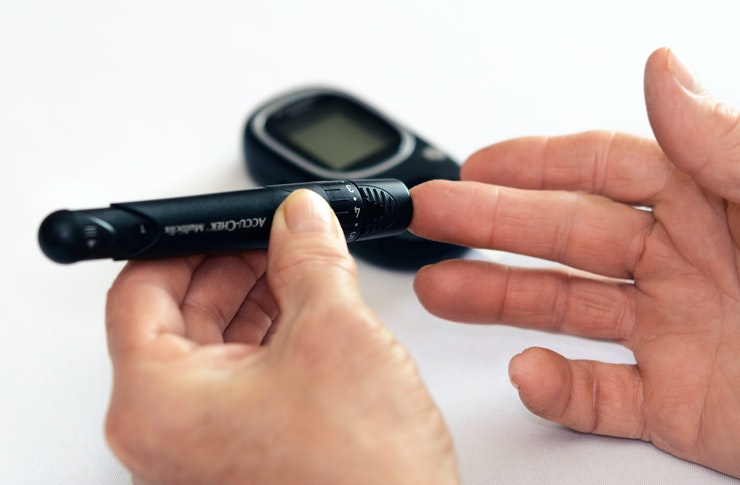Diabetes Treatment: Understanding Options for Blood Sugar Management
Diabetes treatments for blood sugar management focus on maintaining healthy glucose levels through a mix of strategies. These may include balanced nutrition, regular physical activity, medication, or insulin therapy. The goal is to reduce complications while supporting energy and overall well-being.

What are the primary goals of diabetes treatment?
The main objectives of diabetes treatment revolve around maintaining blood sugar levels within a target range. This helps prevent both short-term and long-term complications associated with the disease. Treatment goals typically include:
-
Keeping blood glucose levels as close to normal as possible
-
Preventing or delaying the onset of diabetes-related complications
-
Improving overall quality of life for individuals with diabetes
-
Reducing the risk of cardiovascular disease, which is more common in people with diabetes
Achieving these goals often requires a multifaceted approach, combining lifestyle modifications with medical interventions tailored to each patient’s specific needs.
How do lifestyle changes contribute to diabetes management?
Lifestyle modifications play a crucial role in diabetes treatment and are often the first line of defense in managing blood sugar levels. Key lifestyle changes that can significantly impact diabetes control include:
-
Diet: Following a balanced, nutritious diet that focuses on controlling carbohydrate intake, incorporating fiber-rich foods, and limiting saturated fats.
-
Exercise: Regular physical activity helps improve insulin sensitivity and lowers blood glucose levels. Aim for at least 150 minutes of moderate-intensity aerobic activity per week.
-
Weight management: Maintaining a healthy weight can improve insulin resistance and overall blood sugar control.
-
Stress reduction: Chronic stress can affect blood sugar levels, so incorporating stress-management techniques like meditation or yoga can be beneficial.
-
Smoking cessation: Quitting smoking can reduce the risk of diabetes-related complications and improve overall health.
These lifestyle changes are often recommended in conjunction with medical treatments to achieve optimal blood sugar control.
What medications are commonly used for diabetes treatment?
Several types of medications are available for managing blood sugar levels in people with diabetes. The choice of medication depends on the type of diabetes, individual patient factors, and treatment goals. Common diabetes medications include:
-
Metformin: Often the first-line medication for type 2 diabetes, it works by reducing glucose production in the liver and improving insulin sensitivity.
-
Sulfonylureas: These drugs stimulate the pancreas to produce more insulin.
-
DPP-4 inhibitors: These medications help the body continue to make insulin and reduce glucose production.
-
GLP-1 receptor agonists: These drugs slow digestion, increase insulin production, and reduce glucose production.
-
SGLT2 inhibitors: These medications help the kidneys remove excess glucose through urine.
-
Insulin: Used in type 1 diabetes and sometimes in type 2 diabetes, insulin is administered via injections or an insulin pump to regulate blood sugar levels.
-
Thiazolidinediones: These medications help improve insulin sensitivity in the body’s tissues.
It’s important to note that medication regimens are often personalized and may involve a combination of different drugs to achieve optimal blood sugar control.
What role does technology play in diabetes treatment?
Advancements in technology have significantly improved diabetes management and treatment options. Some key technological innovations include:
-
Continuous Glucose Monitoring (CGM) systems: These devices provide real-time glucose readings throughout the day and night, allowing for more precise management of blood sugar levels.
-
Insulin pumps: These devices deliver insulin continuously throughout the day, mimicking the body’s natural insulin production more closely than injections.
-
Artificial pancreas systems: Combining CGM and insulin pump technology, these systems automatically adjust insulin delivery based on glucose readings.
-
Smartphone apps: Various applications help patients track their blood sugar levels, medication doses, diet, and exercise, facilitating better self-management.
-
Telemedicine: Remote consultations with healthcare providers enable more frequent check-ins and adjustments to treatment plans without the need for in-person visits.
These technological advancements have greatly improved the accuracy and convenience of diabetes management, leading to better outcomes for many patients.
How is diabetes treatment evolving?
Research in diabetes treatment is ongoing, with several promising areas of development:
-
Improved insulin formulations: Researchers are working on developing “smart” insulins that activate only when blood sugar levels rise, reducing the risk of hypoglycemia.
-
Immunotherapy: For type 1 diabetes, researchers are exploring ways to prevent or reverse the autoimmune attack on insulin-producing cells.
-
Gene therapy: Studies are investigating the potential of gene editing techniques to treat or prevent diabetes.
-
Stem cell therapy: Research is ongoing to develop methods of regenerating insulin-producing cells using stem cells.
-
Gut microbiome interventions: Scientists are exploring how modifying the gut microbiome might improve insulin sensitivity and glucose metabolism.
As research progresses, new treatment options may become available, potentially offering more effective and personalized approaches to diabetes management.
Diabetes treatment has come a long way, with a range of options available for blood sugar management and control. From lifestyle modifications to medications and cutting-edge technologies, patients and healthcare providers can work together to develop comprehensive treatment plans. As research continues, the future holds promise for even more advanced and targeted therapies to improve the lives of those living with diabetes.
This article is for informational purposes only and should not be considered medical advice. Please consult a qualified healthcare professional for personalized guidance and treatment.




